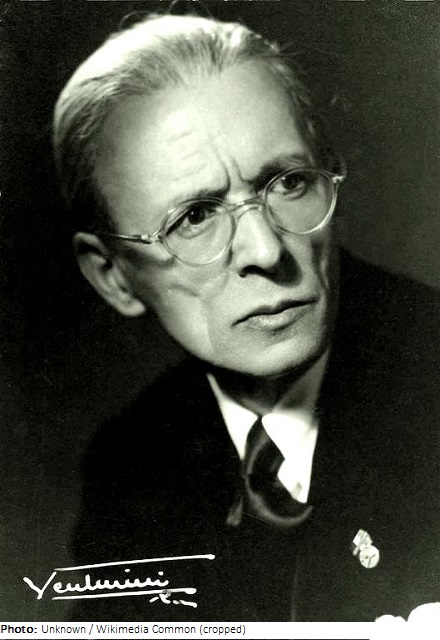
| Roles | Referee |
|---|---|
| Sex | Male |
| Full name | Ildebrando•Pizzetti |
| Used name | Ildebrando•Pizzetti |
| Born | 20 September 1880 in Parma, Parma (ITA) |
| Died | 13 February 1968 (aged 87 years 4 months 23 days) in Roma, Roma (ITA) |
| NOC |  Italy Italy |
Ildebrando Pizzetti received piano lessons from his father, pianist Odvardo Pizzetti (1853-1926), and studied at the Parma Conservatory, graduating in 1901. There, he taught from 1907 and one year later went to be Conservatory of Firenze, becoming its director in 1917. Subsequently, he was director of the Milan Conservatory from 1924-36. He then went to Rome and taught at the Accademia di Santa Cecilia in Rome until 1958, acting as its president from 1947-52. He was one of the most influential composition teachers of his time and is considered one of the pioneers of modern Italian music. Pizzetti was a supporter of Italian fascism and signed the “Manifesto of the Fascist Intellectuals” in 1925. In 1931 he received the first Mussolini Prize for the opera Deborah e Jaele.
In 1914 Pizzetti co-founded a magazine in Firenze called Dissonanza to promote the cause of new music. In 1930 he traveled to the United States to attend the performance of his Rondo veneziano with the New York Philharmonic under Arturo Toscanini. The following year he conducted his opera Fra Gherardo in Buenos Aires.
Pizzetti’s music represents Romanticism in 20th-century Italy. In his numerous theatrical works, the mystical element is very strong in his operatic texts. Among his settings were several works by Gabriele d’Annunzio, whom he admired. In addition to stage works, Pizzetti also wrote symphonies, chamber and piano music, and vocal works. He also contributed the musical score for several fascist propaganda movies. Musically, he used strict chromatic harmony, but the main part of his melodies is based on pure diatonic lines.
| Games | Sport (Discipline) / Event | NOC / Team | Phase | Unit | Role | As | |
|---|---|---|---|---|---|---|---|
| 1924 Summer Olympics | Art Competitions |  ITA ITA |
Ildebrando Pizzetti | ||||
| Music, Open (Olympic) | Final Standings | Judge |